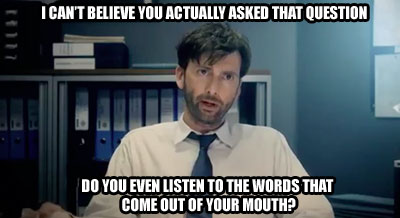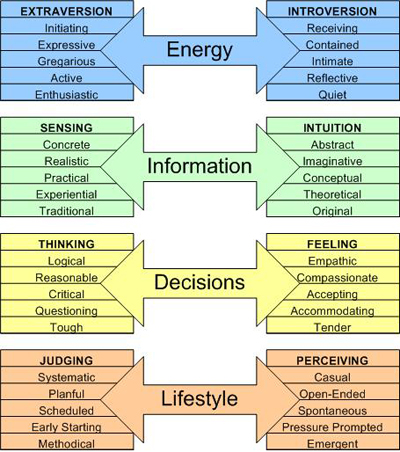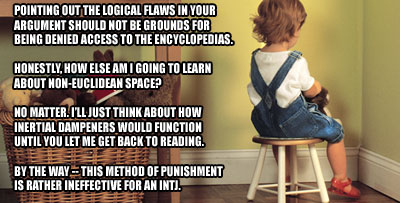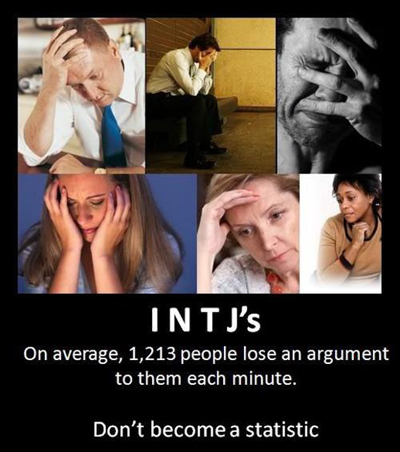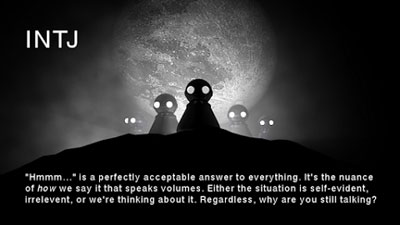The first part of any plan is preparation. This guide assumes that, if you’re reading the “Preparation” chapter, the zombie apocalypse is currently only forecast, not imminent, ongoing, or — God forbid — over. So, you currently have some leisure time to use to preparing for the day when zombies rise up and begin feasting upon humanity’s tasty still-living innards. That means (for the slower amongst you) that you should take the time to purchase necessary gear, make notes, and prepare yourselves mentally for the day when the excrement hits the circular ventilator and the undead horde comes a-growlin’.
Preparation Plans of Vital Importance:
1) This shirt and/or poster from Dinosaur Comics — Buy this shirt and/or poster. Actually, get multiple copies. Like two for each family member. Seriously. Quit looking at me like I’ve gone crazy. The information on these items can act as a very useful reference tool during the zombie apocalypse. It’s a succinct guide to how to cobble together useful modern inventions that you may not be able to find when the local big box stores are looted and/or home to a hungry horde of the undead.

This shirt might save your life. Don’t thank me; thank Ryan North who came up with it (and who I hope won’t be bothered by my borrowing the image)
2) Purchase a composite bow or crossbow — Unless you have access to the materials to make gunpowder, reloading equipment, and knowledge of gunsmithing, chances are that, in time, you’re going to run out of bullets or your gun is going to need repair. After repeated use, guns need to be taken apart and cleaned and you may find that supplies to do so and to keep all of the moving parts oiled are in very short supply. However, a bow and arrows are technology that anyone can learn to maintain. True, today’s composite bows aren’t nearly as durable or easy to maintain as the old English longbows but they are much easier to use and repair. Keep plenty of spare bowstrings with you. Also, learn how to make your own arrows since, during the ZA, you probably won’t be able to stop off at the sporting goods store to pick up extra ones.
A crossbow is great for women since it doesn’t require as much upper-body strength to use. It’s also great for weirdos like me who have to aim out of their left eye but are right handed (meaning we have to use a southpaw bow to have a hope of hitting the target but can’t pull it back because our main arm is the right arm, not the left). It’s also easier to learn to use and aim than a regular bow (though still more difficult than a gun).

Crossbows aren’t just for badasses
3) Store up food reserves — Store non-perishable food like uncooked rice, pasta, boxed macaroni and cheese, Ramen noodles, canned foods (like Spaghetti-oes with meatballs), jerky, salt, and sugar. None of these require refrigeration and they can all be cooked or eaten without needing anything more complicated than an open flame. Keep water on-hand as well — either bottled or in re-usable jugs. You will need to pay attention to expiration dates on the bottles and will need to switch the jugs around every so often. Water doesn’t “spoil” per se but it does become undrinkable after a few weeks/months depending on the atmosphere.
4) Stock up on power reserves — Batteries, solar panels, windmills, waterwheels, and gasoline can all be stored for varying amounts of time. Gasoline with ethanol in it will tend to collect water which, over time, will make it impossible to ignite. You can refine and re-distill it with the appropriate tools and knowledge. You can also use distilled corn whiskey to power a car for a while so you might want to consider adding a still to your list here.

Can double as a fuel-maker in a pinch
5) Gather trade-able hard currency — Paper currency and coins are very quickly going to be worthless for anything other than vending machines. Gold, silver, platinum, and gemstones will wind up acting as de facto currency immediately after the ZA ends while the world is putting itself back together. So, if you can, gather them together and cache them some place. Don’t keep them with you during the ZA — it’s too likely that you’ll either be robbed or unable to trade them for anything useful without losing a lot of value. You might keep some smaller ones with you — just in case.
6) Prepare a safe place to bolt when the SHTF — We’ll go over this in more detail later but, if you’ve been preparing ahead of time, one thing you definitely need is a place to bolt to when things get too bad where you are. This is mostly if you live in the city or in a suburban area near a city. Cities will be the absolute worst places to be during the ZA. You’ll want to be at least an hour from any city larger than 100,000 and two to three hours away from any major urban hubs like Atlanta, Dallas, Houston, Phoenix, Austin, Orlando, Miami, Sacramento, Cincinnati, Seattle, Portland, St. Louis, Las Vegas, and Detroit. Getting away from the East Coast and West Coast urban corridors (Boston-NYC-Philadelphia-DC-Baltimore on the East Coast, Los Angeles-San Francisco-San Diego on the West Coast) is absolutely critical. Five hours or more is recommended.
Your safe house should be in an area where you are not easily seen from any high traffic roads. It should either be set in a clear area where you can see at least a half-mile in any direction or, if you are blocked in one or more directions, those areas should be difficult for vehicles or large groups of people to move through undetected. The house should have a basement or storm cellar with a strong ceiling and a single main entrance with a heavy door that locks on both sides. You’ll want to keep plenty of food in the basement in case a horde of the undead or a group of ne’er-do-wells comes through and you need to hide out. Ideally, you’ll have a tunnel hidden in the basement with a second locking door that will allow you to escape to a camouflaged (and locked) entrance some distance away.
This home should have plenty of fields for planting different crops, pastures for cattle, a barn (with a basement), stables for horses, pigs, chicken coops, water, a fruit orchard, vegetable and herb gardens, and should be defensible with a secure perimeter.
7) Learn some basic medical skills and stock up on medical gear and drugs — This includes local botany and a bit of pharmacology. Take course from the local Red Cross for first responders. Study up on how to set broken bones, sew stitches, perform minor surgery, and perform a C-section. You might also want to learn how to remove teeth safely. Anything more than that is probably going to be beyond your ability without access to a blood bank, a sterile environment, and advanced respiratory and cardiac equipment, and a lot of surgical tools. You’ll want to focus on learning about the most common illnesses and treatments for them. You might also want to learn about some of the now-less-common illnesses such as measles, mumps, rubella, typhoid fever, cholera, and the like.
Just because it will come up: no, there is no such plant, herb, or anything that acts as a “natural” birth control pill. There was such a thing but it went extinct during the Roman era.

If someone had known what they were doing, Lori would still be annoying us with her presence
8) Stock up on purification and sterilization equipment — Get some iodine or water purification tablets and equipment. They will let you purify water when you’re on the go.
9) Get basic survival gear and learn some basic skills — Get a good hiking backpack, a small tent, a sleeping bag, canteen, flint and steel, a compass, and learn to use them all. Learn how to make fire in a variety of ways including making a firebow. Learn to track, hunt, and skin game. Learn to live off the land.
10) Consider purchasing a loom and some old-fashioned sewing gear — When there are no clothing stores, you’ll have to make what you have last and you’ll have to learn to re-purpose some items to fit others.

Loom required to make this poncho. Awesomeness required to make the badass wearing it
Once you have made your preparations and gotten your plans in order, you should be ready to weather the zombie apocalypse. At least, physically. Mentally and emotionally is going to wind up being a completely different story.
— G.K.

























